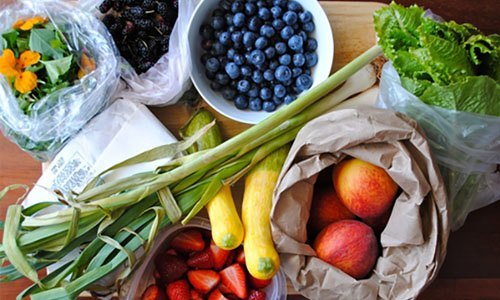

Read page 1
How we label cancer is no longer synced up with what we know about the origins of cancer or the fact that two people who have cancer with the same name—like breast cancer—can have two completely different diseases which require different treatments. Just because you know the name of your disease doesn’t mean you know what’s wrong with you or what to do about it.
Classifying tumors by body site—lung, liver, brain, breast, colon, etc.—misses the underlying causes, mechanisms and pathways involved in a particular cancer. What’s more, it gives us no information about how it manifested in a given patient. Two people with cancers in different parts of the body may have developed it for the same reasons.
Similarly, two people with cancers in the same part of the body may have developed it for different reasons. A patient with prostate cancer and one with colon cancer may have more in common with each other than two patients who have colon cancer.
We need to look under the hood and find out what caused the illness to begin with.
Cultivating a Healthy Soil
Numerous things can contribute to cancer. Studies show diet, exercise, thoughts, feelings and environmental toxins all influence the initiation, growth and progression of cancer.
If a nutrient-poor diet full of sugar, lack of exercise, chronic stress, persistent pollutants and heavy metals can cause cancer, could it be that a nutrient-dense, plant-based diet, physical activity, changing thoughts and reactions to stress and detoxification might treat the garden in which cancer grows?
In other words, treat the soil, not the plant. It is a foundational principle of sustainable agriculture and of sustainable health.
We can enhance immune function and surveillance through dietary and lifestyle changes, as well as nutrient and phytonutrient therapies. We can facilitate our body’s own detoxification system to promote the elimination of carcinogenic compounds. We can improve hormone metabolism and reduce the carcinogenic effects of too much insulin (more on that in a minute) from our high sugar and refined carbohydrate diet.
We can also alter how our genes are expressed by changing the inputs that control that expression: Diet, nutrients, phytonutrients, toxins, stress and other sources of inflammation. And we can focus on less divisive and more generative thoughts that, in turn, create more uplifting emotions—all good fertilizer for the soil in the garden of our body.
5 Strategies to Reduce Cancer Formation and Growth
Cancer results from an imbalance in our system where the immune system can’t fight off tumors. We can do many things to prevent that cancer from getting to its full stage and if you have cancer, you can make your body inhospitable to that cancer.
- Ditch sugar. Sugar feeds cancer and creates diabesity. The average American consumes about 152 pounds of sugar a year and about 146 pounds of flour a year. Diabesity affects over 1.7 billion people worldwide. Scientists conservatively estimate it will affect one in two Americans by 2020; 90 percent of whom will not be diagnosed. The number one thing you can do to prevent or control cancer is to control insulin levels with a high-fiber diet rich in real, fresh, whole foods and minimize or eliminate sugary, processed, insulin-raising foods.
Dr. Dean Ornish showed that after just three months on an intensive lifestyle program including a whole-foods, plant-based diet, over 500 genes that regulate cancer were beneficially affected, either turning off the cancer-causing genes or turning on the cancer-protective genes. No medication can do that.
- Eliminate food sensitivities. In a major study in the Journal of the American Medical Association, hidden gluten sensitivity was shown to increase risk of death by 35 to 75 percent, mostly by causing heart disease and cancer. By just this mechanism alone, more than 20 million Americans are at risk for heart attack, obesity, cancer and death. Dairy and gluten are the most common triggers of food allergies that are linked to insulin resistance. Cutting them out of the diet allows the inflamed gut and an inflamed body to heal.
- Reduce inflammation. Inflammation is the common thread connecting most chronic disease including cancer. In fact, out-of-control inflammation causes insulin resistance, which, as we now know, is the main factor in all these diseases apart from autoimmunity and allergy. The insulin resistance then creates even more inflammation and the whole biological house burns down. Besides removing sugar and food sensitivities like gluten and dairy, we want to eat plenty of anti-inflammatory foods, including omega-3 rich foods like wild fish and flaxseeds.
- Improve gut health. Cancer often originates in your gut. Not just colon cancer, but with many cancers. We are currently studying about the gut microbiome and breast and prostate cancers. Beyond avoiding inflammatory foods, adding in probiotics, prebiotics and lots of phytonutrients, like curcumin (found in turmeric) and resveratrol (found in grapes), can reduce gut-based inflammation.
- Reduce toxic exposure. The average newborn has 287 chemicals in her umbilical cord blood, 217 of which are neurotoxic (poisonous to nerves or nerve cells). The chemicals these infants are exposed to include pesticides, phthalates, bisphenol A, flame retardants, and heavy metals such as mercury, lead, and arsenic. These chemicals have a broad range of negative effects on human biology; they damage the nervous system and increase the risk of cancer, and now they have been shown to contribute to obesity. Going clean and green means becoming more aware about how environmental toxins affect your health. I encourage you to visit the Environmental Working Group (EWG) to learn more.

 233k
233k  41k
41k  Subscribe
Subscribe 